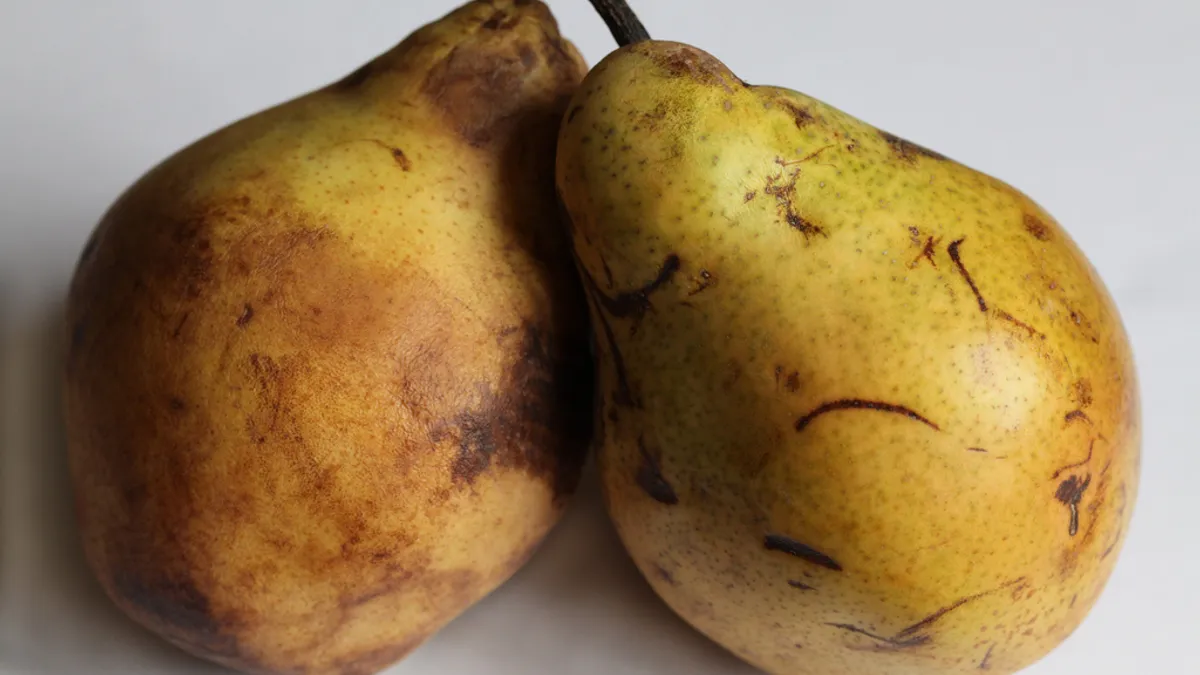Dive Brief:
- Hy-Vee is adding Robinson Fresh’s Misfits produce line in most of its 242 retail stores, embracing the “ugly” produce movement, according to Progressive Grocer. The company plans to have four to six Misfit items on sale weekly.
- The addition of the ugly fruit and veggies not only improves the company’s food waste diversion efforts, but provides produce at lower costs for its customers. It’s estimated that the produce will sell for about 30% less than regular produce.
- John Griesenbrock, Hy-Vee’s VP of produce/HealthMarkets, said the initiative is keeping with the U.S. Department of Agriculture’s goal to reduce food waste by 50% by the year 2030.
Dive Insight:
The USDA estimates that supermarkets waste close to $15 billion of unsold fruits and vegetables each year. Groceries escalate this problem by throwing away produce that isn't in perfect condition in order to optimize sales and keep their displays attractive.
Stores in Great Britain have long marketed “ugly” produce at discounts and have found great success, although grocery analysts in the U.S. say American consumers are usually more picky. These produce initiatives have taken off in Europe as well. In fact, the French supermarket, Intermarche, started a campaign called Inglorious Foods that uses storytelling about less-than-perfect produce to encourage consumers to buy it.
While some retailers in the U.S. have experimented with ugly produce displays and promotions, Hy-Vee is one of the first to commit to regularly carrying the items. Food analysts suggest putting ugly produce in smoothies or marketing them as ways to save more money and try something new.
Whole Foods and Wal-Mart have developed similar initiatives, though neither retailer sells ugly produce chain-wide. Until a major grocery chain does so, these programs may be too niche to make a real dent in the food waste issue - a $1 trillion global crisis.
Discounted prices may not be enough to convince consumers to buy ugly produce, either. American retailers should focus on educating consumers that imperfect or ugly produce tastes the same as normal-looking fruit and vegetables, either through in-store tastings or through marketing campaigns like Inglorious Foods.








